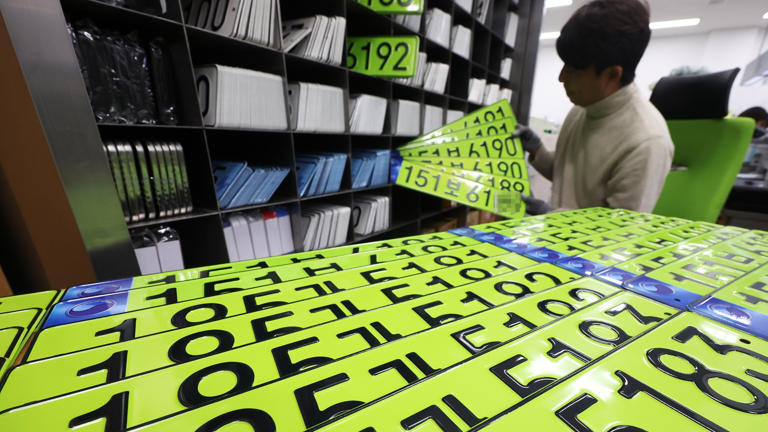It’s a tough time to be a luxury car enthusiast in South Korea, at least if you’re trying to write it off as a business expense. Corporate car sales have taken a dramatic plunge in 2024, with the culprit parked right in front of everyone’s noses: the shiny new lime green license plates now adorning high-end corporate-owned vehicles. Introduced in January, these attention-grabbing plates are part of a government crackdown on tax loopholes. Turns out, the practice of claiming luxury rides like Mercedes-Benz and Porsches as “business expenses” hasn’t gone unnoticed. Now, that flashy green plate is not only a signal to the tax office, but also to every passerby.
The numbers speak for themselves. Sales of corporate vehicles over 80 million won have dropped by 27.7 percent in the first half of the year. The prestigious Mercedes-Benz S-Class, the beloved sedan of corporate elites, has seen sales nosedive by 63.9 percent. Porsche, Bentley, and even Rolls-Royce aren’t immune to this license plate revolt either.
For some, the green plates are just the final nail in an already shaky economy’s coffin. A macroeconomic slowdown has compounded the problem, meaning that even those with deep corporate pockets might think twice before pulling the trigger on their next ultra-luxury splurge. And then there’s the rush—many businesses scrambled to buy their vehicles before the plates hit the scene, resulting in a December 2023 spike in corporate car sales that’s now dramatically cooling off. So, for now, South Korea’s streets may be seeing a little less luxury, and perhaps a little more humble pragmatism.
(Source: Korea Herald)









